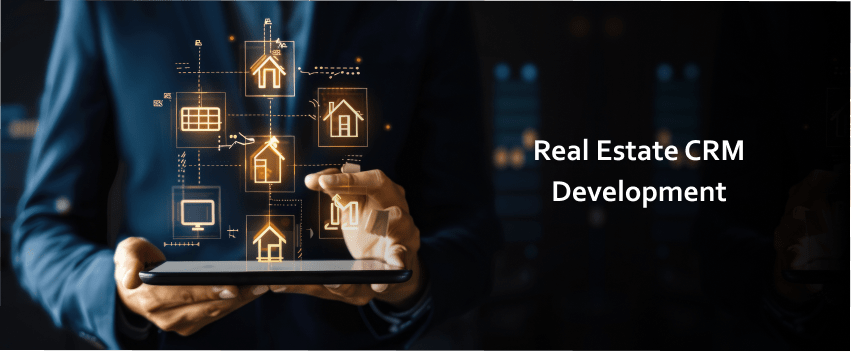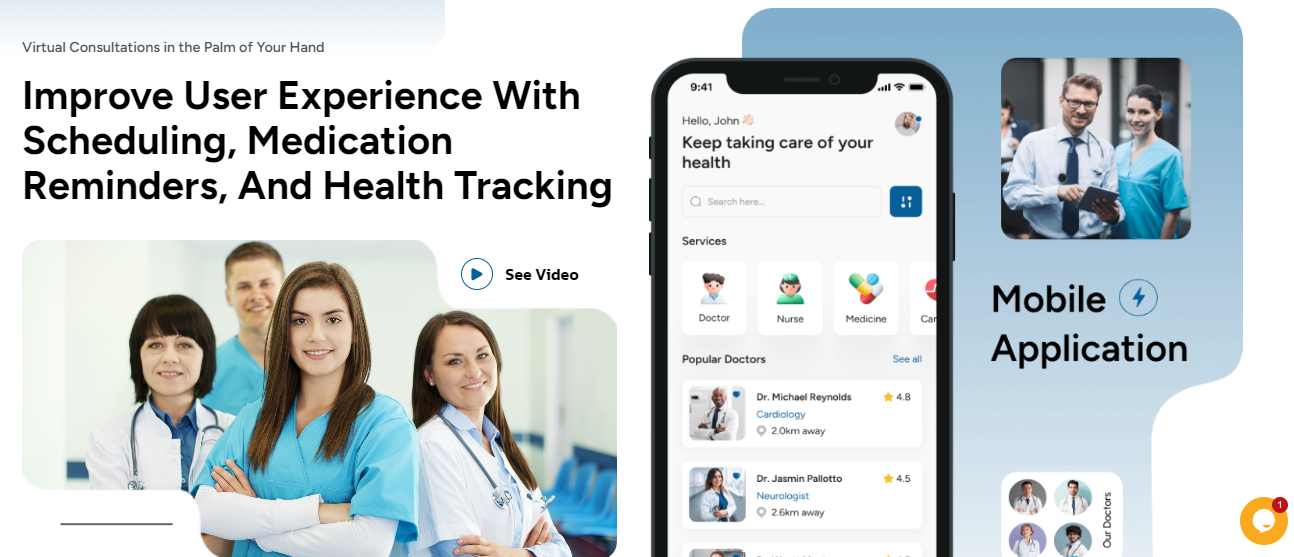Building a Secure Spring Boot...
November 4, 2025

In today’s competitive real estate market, the ability to manage customer relationships efficiently can be the difference between success and failure. With the rise of digital solutions, Real Estate CRM Development has emerged as a critical tool for firms looking to streamline their operations, improve customer interactions, and ultimately, boost their bottom line.
This blog delves into the cost, features, and best practices for developing a robust real estate CRM, ensuring that your investment yields significant returns.
Real Estate CRM (Customer Relationship Management) software is designed specifically for real estate professionals to manage interactions with leads, clients, and other stakeholders.
It serves as a centralized platform that integrates all aspects of customer management—from lead generation and communication to sales tracking and post-sales follow-up. This software not only helps in organizing client data but also enhances the efficiency of real estate operations by automating various tasks, enabling agents to focus more on client engagement and less on administrative duties.
Related Post: Top Python Development Companies for Your Next Project
When developing a Real Estate CRM, it’s crucial to incorporate features that address the unique needs of the real estate industry. Here are some essential features to consider:
Lead Capture: Automatically capture leads from various sources such as websites, social media, and emails.
Lead Segmentation: Categorize leads based on criteria like source, potential value, and buying intent.
Lead Nurturing: Automate follow-ups and reminders to keep leads engaged and move them through the sales funnel.
Client Profiles: Maintain detailed profiles for each client, including contact information, property preferences, and transaction history.
Activity Monitoring: Track all interactions, such as calls, emails, property viewings, and meetings, to stay updated on client progress.
Email Campaigns: Automate personalized email campaigns to inform clients about new listings or market updates.
Social Media Integration: Post updates and manage social media interactions directly from the CRM.
Targeted Marketing: Use CRM data to run targeted advertising campaigns that reach the right audience at the right time.
Performance Dashboards: Track key performance indicators (KPIs) such as conversion rates and lead sources.
Custom Reports: Generate detailed reports tailored to your specific needs, helping you make informed business decisions.
Market Forecasting: Use predictive analytics to forecast market trends and customer behavior.
Responsive Design: Ensure that the CRM is accessible on mobile devices, allowing agents to work from anywhere.
Mobile Apps: Develop dedicated mobile applications for iOS and Android platforms to enhance on-the-go accessibility.
Third-Party Integrations: Integrate the CRM with other tools such as email marketing platforms, MLS systems, and accounting software to streamline operations.
API Support: Ensure that the CRM can communicate with other software systems through APIs for seamless data exchange.
Scheduling: Set reminders and due dates for tasks to ensure timely follow-ups and property showings.
Collaboration Tools: Enable team members to collaborate on tasks and share updates in real-time.
Secure Storage: Store important documents such as contracts and agreements securely within the CRM.
Easy Retrieval: Ensure that documents can be easily accessed and shared with clients or other stakeholders.
Related Post: Learning Management System: Development Steps, Costs, & Benefits

To develop an effective Real Estate CRM, following best practices to ensure the software meets your business needs and enhances your operational efficiency is essential.
The CRM should offer a customizable interface that allows users to tailor the software to their specific workflow and preferences. This increases adoption rates and ensures that the software is used effectively.
As your business grows, your CRM should be able to scale with it. Ensure that the CRM can handle an increasing number of users, leads, and data without compromising performance.
Given the sensitive nature of client data, security should be a top priority. Implement robust security measures such as encryption, multi-factor authentication, and regular security audits to protect your data.
Provide comprehensive training for users to ensure they understand how to use the CRM effectively. Additionally, offer ongoing support to address any issues that may arise.
Regularly update the CRM to incorporate new features and technologies that enhance its functionality. Stay informed about industry trends and client feedback to ensure that the CRM continues to meet your business needs.

The cost of developing a Real Estate CRM can vary widely depending on several factors, including the scope of features, technology stack, and development team. Here’s a rough breakdown of the costs:
Basic Real Estate CRM: $30,000 – $60,000
Includes essential features such as lead management, client tracking, and basic reporting.
Mid-Range Real Estate CRM: $60,000 – $120,000
Offers advanced features like marketing automation, mobile access, and custom reporting.
Advanced Real Estate CRM: $120,000 – $250,000+
Provides comprehensive features, including integration capabilities, robust security, and scalability.
Investing in Real Estate CRM Development is a strategic decision that can significantly transform how your real estate business operates.
By integrating the right features and adhering to best practices, you can create a CRM that not only streamlines your processes but also enhances customer satisfaction, driving growth and success.
Whether you’re a small firm looking to optimize client interactions or a large enterprise aiming to scale efficiently, partnering with a reputable software development company is key to staying competitive in today’s dynamic market.
Choosing the right Software Development Company is crucial to the success of your CRM project. Look for experienced developers who understand the specific challenges of the real estate industry and can deliver a customized solution that aligns with your business goals. A well-designed Real Estate CRM will empower your team, improve client relationships, and ultimately, contribute to a more profitable and sustainable business.